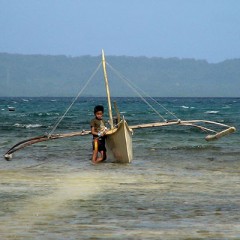Biodiversity
Consequences and Impacts of Biodiversity Loss

Edward O. Wilson, author of the seminal work on the subject of biodiversity, “The Crisis of Biological Diversity” (1985), covered all the bases when he enumerated the primary consequences of loss of biodiversity in a 2010 interview with UNESCO (United Nations Educational, Scientific, and Cultural Organization) (UNESCO, 2010)
Edward O. Wilson, author of the seminal work on the subject of biodiversity, “The Crisis of Biological Diversity” (1985), covered all the bases when he enumerated the primary consequences of loss of biodiversity in a 2010 interview with UNESCO (United Nations Educational, Scientific, and Cultural Organization) (UNESCO, 2010):
- “Loss of many of the biological "genetic encyclopedias" millions of years in the making is one consequence.”
- “Loss or erosion of ecosystems due to destabilization caused by erasure of links in food webs is another.”
- “Loss of opportunities in medicine, biotechnology, and agriculture.
- “Loss of a major part of the greatest national and global natural heritage, permanently.”
Emphasizing his point and the value of protecting the treasures of biological diversity further, Wilson concluded, “Even just one of the consequences just listed – and all will occur together – is a tragedy.”
For losing biodiversity, a country such as the Philippines stands to suffer grave consequences from a socio-economic perspective, just as well as it does in natural and scientific terms. Apart from the outright loss of life, it would also be a shame for the Philippines – a country that is still on the path towards development – to lose the distinction of being one of the most biologically and ecologically resource-rich countries in the world. Worse yet, the Philippines may also risk gaining the reputation of having lost the greatest amount of biodiversity in record time, considering the concentration of distinct species within its relatively small territory.
In terms of impacts on its human populations, continued massive loss of biodiversity will adversely affect the rural poor who remain heavily dependent upon natural products as a primary source of livelihood and even mere subsistence.
To capitalize on inherently rich natural heritage therefore does not mean to exploit and rapidly consume what is currently available. A long-term outlook is needed, involving measures that can help protect resources as they are utilized, thus ensuring that they can be sustained for hundreds of generations to come. A rich natural heritage such as that of the Philippines is something that can be maximized for further national development, through endeavors such as fueling responsibly managed tourism industries and sustainable agricultural industries across the thousands of its inhabited islands.
References
- United Nations Education, Scientific, and Cultural Organization (UNESCO). 2010. Edward O. Wilson: ‘The Loss of Biodiversity is a Tragedy’ (Article). Published on February 10, 2010 and last accessed on October 23, 2013, http://www.unesco.org/new/en/media-services/single-view/news/edward_o_wilson_the_loss_of_biodiversity_is_a_tragedy.
- Catibog-Sinha CS, Heaney LR. 2006. Philippine Biodiversity: Principles and Practice. Quezon City, Philippines: Haribon Foundation for the Conservation of Natural Resources, Inc.
- Galang AP. 2003. Seven Lenses or Environmental Principles as if Adults Mattered. Makati City, Philippines: The Bookmark, Inc.
- Oxfam International. 2013. Growing Disruption: Climate Change, Food, and the Fight Against Hunger. Oxford, UK. (Online: http://www.oxfam.org/sites/www.oxfam.org/files/ib-growing-disruption-climate-change-230913-en.pdf)

 DISPLAY CALENDAR
DISPLAY CALENDAR
 Read Policy Briefs
Read Policy Briefs
 View Our Partners
View Our Partners
 Access Grants MIS
Access Grants MIS
 Login to Webmail
Login to Webmail